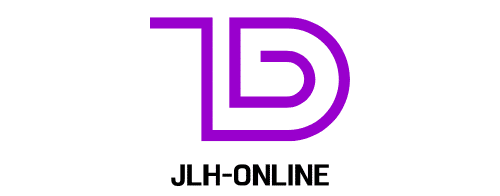Can Machine Learning Improve the Precision of Drug Dosage in Personalized Medicine?

In the world where big data and artificial intelligence have begun to dominate the healthcare industry, one question arises: Can machine learning improve the precision of drug dosage in personalized medicine? We live in an era of personalized medicine where the treatment is customized to the individual patient, with the goal of maximizing efficacy and minimizing side effects. But is it possible for machine learning, with its massive data crunching ability, to increase the precision of drug dosage and help doctors make more informed decisions about patient care?
The Role of Data in Personalized Medicine
The role of data in healthcare can’t be understated. It is necessary for predicting disease risk, diagnosing illnesses, prescribing medicine, and monitoring patient health. In the context of personalized medicine, data takes on an even more critical role.
In parallel : How Are AI-Driven Virtual Fitting Rooms Impacting Online Apparel Sales?
Personalized medicine is a medical model that tailors treatment to the individual characteristics of each patient. This method uses information about a person’s genes, proteins, and environment to prevent, diagnose, and treat disease. In essence, it seeks to give the right treatment to the right patient at the right time, based on their unique biological makeup.
The efficacy of personalized medicine is heavily reliant on data. It needs vast amounts of patient-specific data to make accurate predictions and recommendations. Lab test results, genetic sequencing, medical histories, and even lifestyle information make up the data used in personalized medicine.
Also read : How Are Smart Dust Devices Enabling Next-Generation Environmental Sensing?
Drug Dosage Prediction and Machine Learning
One of the biggest challenges in healthcare is determining the right drug dosage for a patient. Too little could render the medicine ineffective, while too much could lead to adverse side effects. This is where machine learning can help.
Machine learning, a subset of artificial intelligence, is capable of learning from and making predictions based on data. In healthcare, machine learning models can be trained on patient data to predict the optimal drug dosage for a specific individual. This prediction model considers various factors such as the patient’s weight, age, sex, genetic makeup, and disease severity.
For example, Google has developed a machine learning model that predicts the optimal dosage of cancer drugs based on the patient’s genetic makeup. The model uses a database of genetic and medical data from cancer patients, making it one of the most advanced tools in personalized medicine.
The Real-world Application of Machine Learning in Drug Dosage
The real-world application of machine learning in drug dosage prediction is not a distant dream. There have been successful instances where machine learning algorithms have been used to improve drug dosage precision.
In a clinical setting, for instance, a machine learning model was used to predict the optimal dosage of warfarin, a blood-thinning drug. The model considered factors such as the patient’s age, sex, weight, and genetic makeup. The result was a more accurate prediction of the optimal dosage than the standard clinical algorithms.
Additionally, machine learning has been used in the treatment of diseases such as cancer, where precision is key. Machine learning models have been used to predict the most effective drug dosage for cancer patients. These models consider the patient’s genetic makeup and the specific type of cancer, and have shown promising results in improving the precision of drug dosage.
The Future of Machine Learning in Personalized Medicine
The integration of machine learning in personalized medicine is promising. Its ability to handle large volumes of data and make accurate predictions could greatly enhance the precision of drug dosage.
However, it’s important to remember that machine learning is a tool, not a replacement for human doctors. Machine learning models can provide valuable insights and predictions, but they need to be interpreted and applied by healthcare professionals.
Moreover, there are challenges to consider. For instance, the quality and privacy of patient data used in machine learning models are paramount. Patient data must be accurately collected, securely stored, and ethically used. Additionally, machine learning models must be validated and continuously updated to ensure their performance and reliability.
Overall, machine learning has the potential to significantly improve the precision of drug dosage in personalized medicine. It’s an exciting area of research that could revolutionize healthcare and lead to better patient outcomes. While challenges remain, the future of machine learning in personalized medicine is bright. The promise of delivering the right treatment, to the right patient, at the right time, is becoming more of a reality every day.
Machine Learning Models in Predicting Drug Response
The introduction of machine learning models in predicting drug response has been a significant step towards precision medicine. These models make use of a patient’s gene expression, clinical data, and other relevant information to predict how a patient will respond to a particular treatment.
For instance, random forest and logistic regression models are two popular machine learning algorithms used in predicting drug response. PubMed Google and Oxford Academic have substantial contributions on these predictive models, emphasizing their effectiveness in individualizing treatment plans.
Take, for instance, the development of drugs in cancer treatment. Cancer is a disease with significant variability between patients. Thanks to big data, deep learning, and artificial intelligence, researchers can now analyze combinations of genetic variants that make some people more susceptible to certain types of cancer.
By using machine learning models, scientists can examine the gene expression patterns in different cancer cell lines, which can help predict a patient’s response to various drugs. Furthermore, these models can also guide researchers in drug development and clinical trials to identify the most effective combination therapy for each patient.
Additionally, reinforcement learning, another subset of machine learning, can also optimize drug dosage by learning how the system responds to different doses and adjusting accordingly. This dynamic adjustment can significantly impact decision making in health care, providing personalized treatment plans with improved precision.
A Futuristic Vision of Machine Learning in Personalized Medicine
As we delve deeper into the era of personalized medicine, machine learning is expected to play an even more significant role. Health care professionals and researchers are optimistic about the potential benefits of integrating machine learning in their practices. The thought of making life-changing decisions based on precise, individualized data is no longer a fantasy but a reality gradually unfolding.
Artificial intelligence and machine learning are the talk of the town, especially in the medical field. From Google Scholar research papers to the latest articles on PubMed, the health care industry is brimming with information on how these technologies can revolutionize patient care.
However, it’s not all smooth sailing. Privacy concerns, ethical implications, data quality, and the need for continuous validation and updates of machine learning models are just a few of the challenges that need to be addressed. Additionally, the reliance on machines should not overshadow the importance of a doctor’s experience, intuition, and human touch.
Despite these challenges, machine learning holds great promise for the future of personalized medicine. From drug development and clinical trials to decision-making in treatment, the potential for machine learning to improve precision medicine is vast.
In conclusion, machine learning, with its ability to analyze big data and make accurate predictions, is poised to revolutionize personalized medicine. While it’s not meant to replace health care professionals, it does serve as a powerful tool that can aid clinicians in delivering the right treatment, to the right patient, at the right time. Today, the phrase "precision medicine" is not just a buzzword but a reality, and machine learning is at the forefront of this exciting development. As we continue to unlock its potential, the future of health care looks promising indeed.
